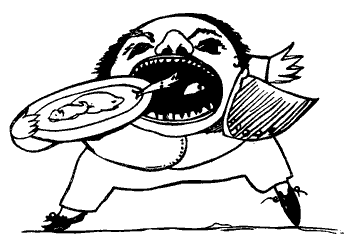Jennifer Diaz
SOS: ComAlt, Seminar pre-write Week 4
30 Jan 2017
Word Count:213
Passages:
“Growth in urbanization spurred the separation of producers and consumers…European growth relied on American plants. …England became the primary market for Califronia wheat, and by 1870, Califronia had become so dependent on the English market that it used a British measurement.” (Newman 2013: 29, 54)
“-[and] finally to the political life of the mouth- a dense and eroticized point for the transfer of power. … Of such importance is the article of bread, that the government of every country ought to hold a controlling hand of those circumstances, within its reach, which may have a tendency to augment the price of this commodity. …The excellence of bread, for many of these writers, lay in the fact that it was an unstimulating food, one that would not tax the body’s digestive energies or lend itself to aggravating the nerves. ” (Tompkins 2012: 58, 62)
News Media Context:
Wes Jackson: A Perennial Revolution in Agriculture
Just over the horizon, Wes Jackson envisions new ways to grow staples to feed us all. He doesn’t imagine thousands of acres of wheat, or mile-wide expanses of hybrid corn. Jackson sees a domestic analog of the prairie where families harvest perennial
sorghum or sunflowers.
sorghum or sunflowers.
Tompkins gives us an excerpt from Colombian Magazine during the eighteenth century where an author proclaims that the government of every country ought to have control over their “important foods” so that they can control their value, if and when that control is needed. Farmer Wes Jackson acknowledges the importance of having a hand on our food system while keeping a pulse on the soil. Jackson dedicated most of his thirty-five years of work to “solving the problem of agriculture” by creating new ways to produce grain, drawing inspiration from natural energy flows, systems that did not require annual disruption of the soil. He describes this agriculture as being far more closely attuned to nature.
We have lost a decent amount of farm land to pavement and soil erosion since the 1970’s, so what will we do when there is not enough space to grow produce for the consumers?
Tompkins described the mouth as being a dense and eroticized point for the transfer of power.
The California and England market dependency caught my attention because the producer (the US) was so flexible and changed their trading language to accommodate their consumer. Who had the power in this situation, the source of the food or the source of the resources that keep the food source out-sourcing?
